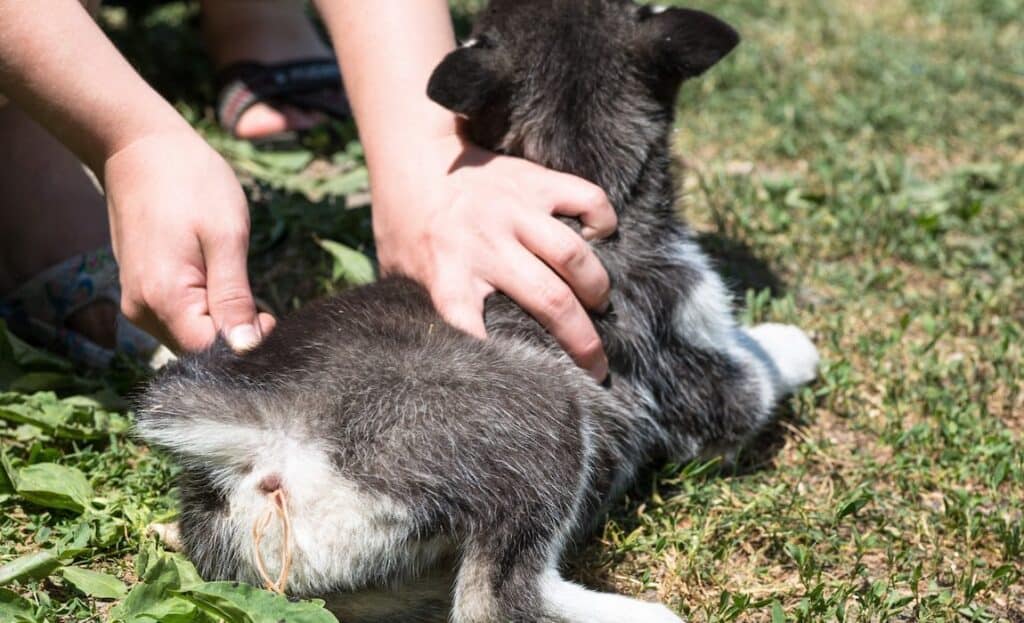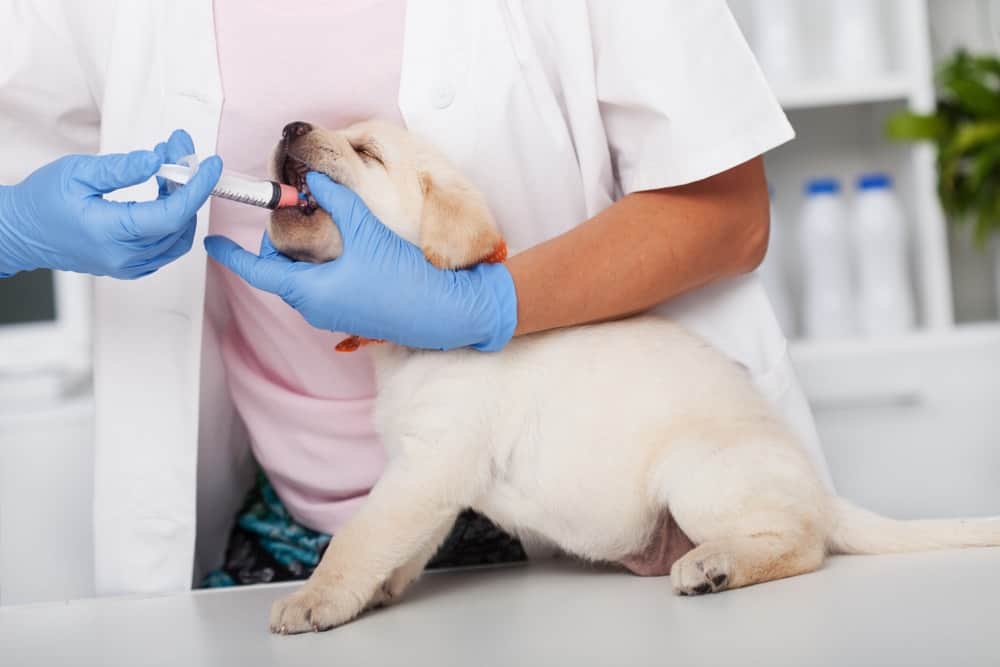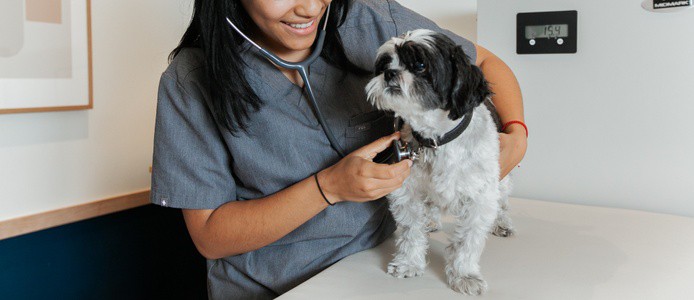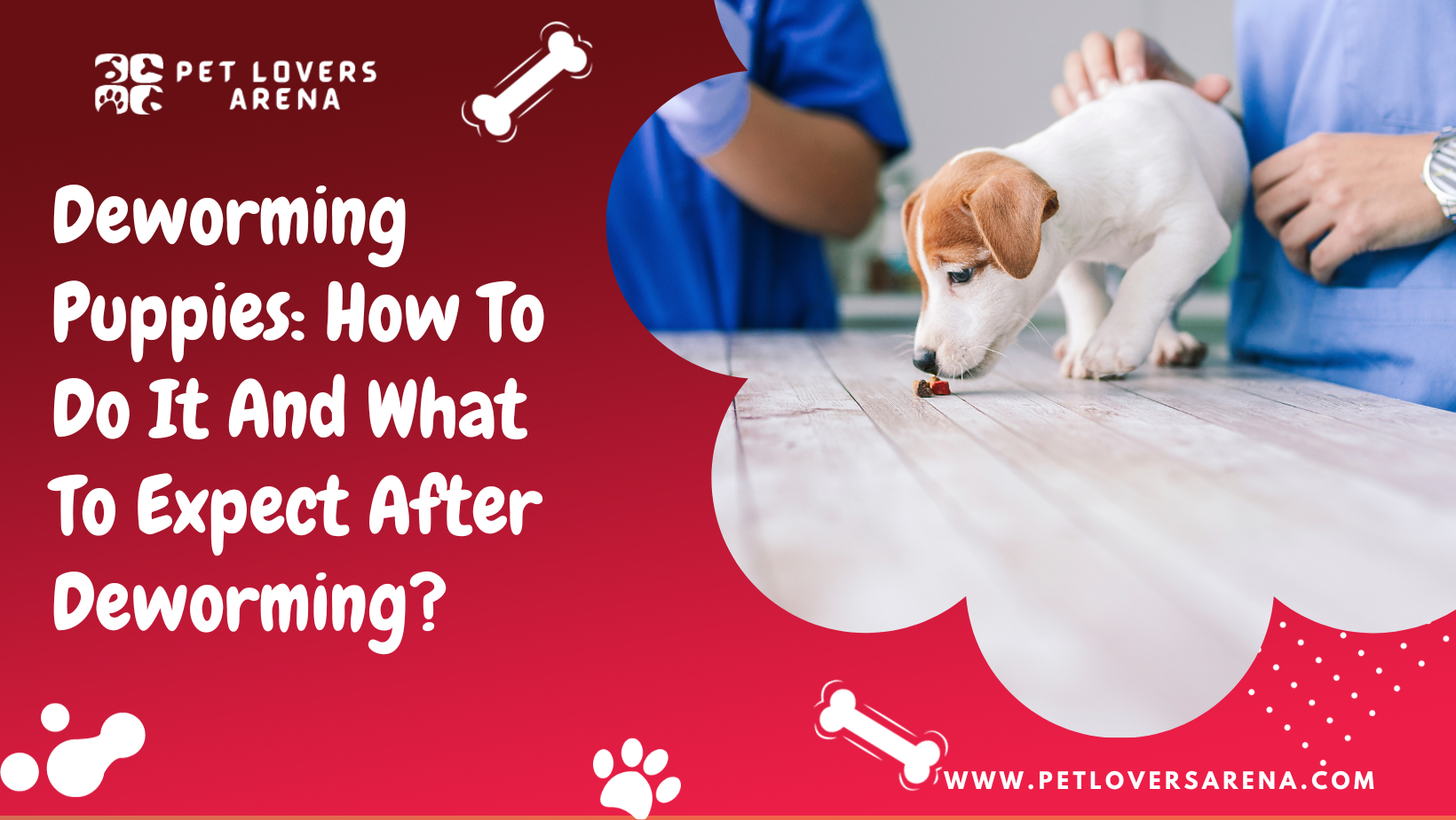Intestinal parasites like worms are a common problem in dogs. And small puppies are more vulnerable to it. So pet parents should know how to deal with the worms living in their pup’s intestine. And it requires deworming to keep your pet parasite-free. However, a more crucial concern is what to expect after deworming a puppy.
Dogs may suffer parasitic problems at any stage of life. They sniff everything, and sometimes curiosity forces dogs to encounter a thing with their mouth. It may be an infected rodent or a common carrier of worms. Also, dogs may eat raw and uncooked meat that has the maximum chance of having worm larvae.
The American Kennel Club reports five common types of worms that affect dogs. These are roundworms, tapeworms, hookworms, whipworms, and heartworms. The worms live in the intestinal wall and survive on the nutrients that your dog consumes. So you definitely will want to treat the worms because they are stealing the calories and nutrients your dog needs to be healthy.
The good news is that deworming the dogs is a simple process you can accomplish at your home. However, you may be unsure of what to expect after deworming a puppy. And to know everything about deworming your puppy and the side effects of the medication, let’s read the post.
How do Puppies Become Infected with Worms?
There are several ways through which your dog can become infected with worms. And the prime reason is the curiosity that forces dogs to encounter everything with their nose and mouth. However, below are the possible reasons for your dog’s parasitic infection.
Transmission From Mother to Puppy
For puppies, it is common to get worms from their mothers. Some parasites like roundworms pass to the puppies when they are still in utero. Also, puppies can become infected when they contact their mother and get the worms through their mother’s milk.
Ingesting Worm Eggs Or Worm Larvae
Puppies lick and sniff everything from debris to poop. It is the way they explore things. And unfortunately, this way, they also ingest plenty of dirt and sometimes worms. Also, all dirty surfaces may have worm eggs and larvae spreading from an infected animal’s poop. And your puppy may get that worm when it comes in contact with the dirty surface.
Getting Worms From Other Animals
Parasites quickly spread from one animal to another. So if there are multiple pets in your house, worms may pass from one pet to the next. And you can prevent it by deworming all of them regularly.
The excrement of other animals is the possible carrier of worm eggs. Also, contaminated food, water, or surfaces spread worm eggs from one pet to another. So it is crucial to keep your pup away from these dirty carriers of worms. And keeping your pet’s food bowl and other things clean will prevent the spread of worms.
Carrying Worms By Fleas
Fleas are prominent carriers of worm larvae. And if puppies get fleas on their coats, they come at risk for a worm infestation. So it will help if you keep an eye for fleas and regularly groom your puppy to ensure your pet remains pest-free.
Getting worms From Own Coat
Puppies like to lick themselves, especially their paws. And with licking, they may ingest parasite eggs attached to their fur.
Puppies with their body exposed to the environment come in contact with dirt and get the worms. So it’s crucial to keep your pet groomed and clean. It will reduce the risk of having worm eggs or larvae on their coat.
How to Know Your Puppy has Worms?

With early detection, you can prevent a lot of troubles caused by intestinal parasites in your puppy. It is because untreated infections can cause health issues in puppies. And so, it is crucial to notice the below warning signs in your pet.
Worms in Your Puppy’s Excrement

You can see it in the poop if your puppy has worms in the intestine. It is because if there are parasites in the intestines, some will pass with your puppies poop. It is also not surprising to see parasites in your infected pet’s vomit. And these are signs of your puppy having intestinal parasites.
Bloating
Bloating is a common symptom of intestinal infection in puppies. It is common in small puppies who have got parasites from their mother.
Weight Loss
Weight loss and poor growth are the most common symptoms of parasitic infection. If your puppy’s growth is not as expected or suddenly starts to lose weight, it has an intestinal infection. It means worms are absorbing the nutrients from the food your pet is eating. And the pet is not getting sufficient nutrients to grow.
Lethargy and Weakness
A healthy puppy is naturally playful and curious. And if you see that your pet appears lethargic and weak, you need to get it checked for worms.
Constant Hunger
With worms in the intestine, your dog will be constantly hungry. It is because the parasites absorb all the nutrients from the food your pet eats. And your puppy keeps feeling hungry.
Moreover, despite this increased appetite, your puppy will not get enough weight as expected. So it is another warning sign of having an infection in your pet’s intestine.
Asymptomatic
You Cannot see all worm infestations with nacked eyes. Your pet may not show any symptoms and still have parasites.
So it’s essential to maintain a regular deworming schedule with advice from your vet. And it doesn’t matter whether you see symptoms of worms or not.
Bonus Read: Do Dogs Get Tired Of Barking? | Complete Truth & Control Measures
How to Deworm Your Puppy?

Intestinal parasites for dogs are a common thing. And every dog owner experiences it with their pets. So it will help if you don’t worry about the symptoms of worms in your puppy. And consult your vet to plan a deworming schedule.
There are various medications available for deworming pets. And your vet will suggest a suitable remedy for your puppy.
Most deworming medicines come in the form of tasty tablets. And these are easy for you to feed your puppy. Also, you can hide the pills in your pet’s food, so your puppy takes them without knowing.
Deworming medications are available in a wide range of powers. And these are effective against different types of worms. So, you should consult your vet to confirm the appropriate dose for your puppy.
You can usually start deworming your puppy from the age of two weeks. And continue deworming the pet every two weeks till it becomes three months old.
After your puppy becomes three months old, you can deworm the pet once a month. And continue this till it becomes six months old. After six months, you can schedule the deworming every three months.
Puppies can become infected when they contact their mother and get the worms through their mother’s milk. So it is crucial to deworm the mothers as well.
It is to note that deworming only kills the existing worms. So you need to take preventive care to stop reinfection.
What to Expect After Deworming a Puppy?

Most deworming medicines take two to six hours to show the result. Some medications dissolve the worms while others paralyze them. And in both cases, you will notice worms pass with your puppies poop. It will continue for three to five days after administering the medication.
The stage after giving deworming medication to your puppy is very crucial. It is because you have to clean the poop properly to prevent reinfection. Also, it is necessary to wash your hands after handling your puppy.
Side Effects of Deworming Your Puppy

Deworming medications are generally safe for your puppy. However, there may be some mild side effects after administering the dose.
Blood In Stool
Your puppy may pass bloody stool as the worms will detach from the intestine. And it is nothing to make you worry. This condition may continue for three days but if it extends, take a vet’s advice.
Diarrhea
Your puppy may get diarrhea after you administer the deworming medication. It is due to the inflammation caused by worms detaching from the intestines. And it is customary to continue for up to three days.
Lethargy
You may notice your puppy is not in its usual playful mood. It is due to the discomfort caused by the worms detaching from the intestinal wall. And if your puppy experiences diarrhea, give it plenty of water to prevent dehydration.
Also Read: Why Does My Dog Keep Scratching His Mouth
How to Prevent Worms in Puppies?

Every dog owner experiences the issue of Intestinal parasites with their pets. And it is a common problem for puppies. Deworming can get you rid of the existing worms, but preventive care is necessary to avoid further infection.
Decompose Your Dog’s Excrement Properly
Your puppy will pass worms with poop after deworming. It will continue for three to five days after administering the medication. So the stage after providing deworming medicine is very crucial. It is because you have to clean the poop properly to prevent reinfection. Also, it is necessary to wash your hands after handling your puppy.
Treat Your Puppy’s Fleas
Fleas are prominent carriers of worm larvae. And if puppies get fleas on their coats, they come at risk for a worm infestation. So it will help if you keep an eye for fleas and regularly groom your puppy to ensure your pet remains pest-free.
Ensure That Your Puppy Have Clean Food And Water
Contaminated food, water, or surfaces have worm eggs that spread from one pet to another. And keeping your pet’s food bowl and bed clean will prevent the spread of worms.
Also, make sure that you give raw foods such as vegetables to your pet after adequately washing them.
Deworm All Your Pets Regularly
Your puppy will stay healthy if you maintain a regular deworming schedule. Also, it is crucial to deworm other pets in the house to prevent cross-infection.
Parasites quickly spread from one animal to another. And you can prevent it by deworming all of them regularly.
Conclusion
Intestinal parasites are something every dog experiences. And for small puppies, it becomes more severe if not treated on time. However, deworming and some preventive care can control it to some extent. In addition, what to expect after deworming a puppy is also a big concern. And it is crucial to abide by all the rules after deworming to prevent reinfection. And this article shares everything about deworming your puppy and the side effects of the medication. So hopefully, the post can guide you to take care of your puppy against intestinal parasites.
Meet John Patterson, an accomplished Dog Trainer and a dedicated advocate for building strong human-canine relationships.With years of experience as a Professional Dog Trainer, John firmly believes that well-trained dogs are a reflection of patient guidance and unwavering care. Beyond his training skills, he finds solace in grooming and playing with dogs, nurturing their physical and emotional well-being.

